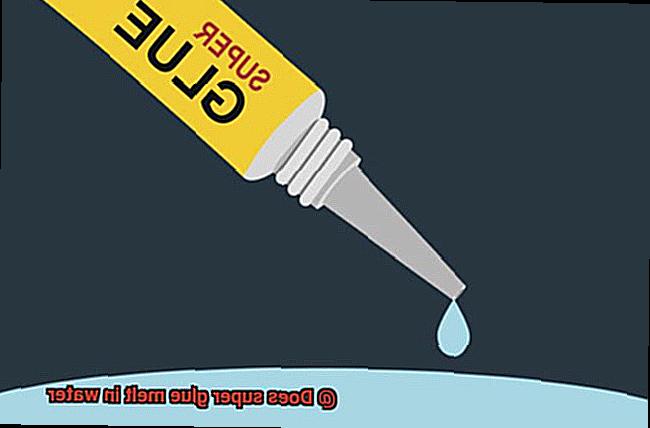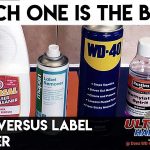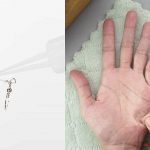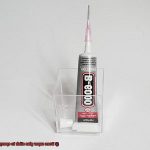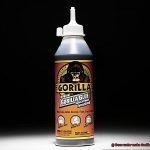Are you a DIY enthusiast or simply curious about the properties of super glue? You might be wondering, “Does super glue melt in water?” This question might seem trivial, but it’s actually quite important, especially if you’re using super glue for outdoor or underwater projects. Imagine gluing something in a pool or on a rainy day, only to find that the adhesive has melted away.
Super glue, also known as cyanoacrylate adhesive, is renowned for its incredible bonding strength and fast-drying properties. It’s commonly used for fixing broken jewelry and repairing plastic toys. But what happens when this adhesive comes into contact with water? Does it stay strong and intact?
The truth is, super glue doesn’t melt in water. In fact, it’s highly resistant to water and can even be used for underwater repairs. However, there are some factors to consider when using super glue in wet environments. For instance, the surface that you’re gluing must be completely dry and free of any oil or debris for the adhesive to bond effectively.
Moreover, if you’re planning to use super glue for a project that will be exposed to water for an extended period of time, it’s recommended to use a waterproof or marine-grade adhesive instead. That said, don’t let this put you off from using super glue altogether. With the right preparation and application techniques, it can still work wonders even in wet environments.
In this post, we’ll delve into the science behind super glue and its reaction to water. We’ll also share some helpful tips on how to use super glue in moist conditions successfully. Whether you’re working on a DIY project or just want to satisfy your curiosity about this popular adhesive – keep reading.
What is Super Glue?
Contents
Super Glue, also known as cyanoacrylate adhesive, is a powerful and fast-acting adhesive that can bond surfaces together in seconds. This amazing adhesive was discovered by Dr. Harry Coover in 1942 while he was working on developing clear plastic gun sights for the military during World War II. However, it wasn’t until the 1950s that it became commercially available and gained popularity.
So, how does Super Glue work? The answer lies in its unique ability to bond surfaces together through a process called polymerization. When Super Glue comes into contact with moisture, such as water vapor in the air, it starts to polymerize and form strong bonds between surfaces. This process happens quickly, which makes it an excellent choice for those seeking a fast-acting adhesive.
Super Glue is ideal for bonding materials such as wood, metal, plastic, rubber, and ceramics. It is even used in medical settings for closing wounds and surgical incisions. However, it is not recommended for use on fabrics or surfaces that are constantly exposed to water or moisture.
One of the reasons why Super Glue is so popular is its resistance to water. When Super Glue comes into contact with water, it undergoes a chemical reaction that causes it to harden and create an even stronger bond between two surfaces. This makes it an excellent choice for bonding materials that are exposed to moisture, such as ceramic tiles or glass.
While Super Glue is highly resistant to water, prolonged exposure to moisture can weaken the bond created between two surfaces. Therefore, it’s essential to use a waterproof adhesive if you’re working on a project where moisture may be present.
Does Super Glue Melt in Water?
This adhesive is a thermoplastic, which means it hardens upon cooling after being heated up. Water is not hot enough to cause super glue to soften or melt. In fact, water can even solidify super glue bonds further.
When super glue comes into contact with water, it undergoes polymerization, a process that creates long chains of molecules that link together to form a solid structure. Surprisingly, adding water during this reaction can speed up the polymerization process and create an even stronger bond.
However, prolonged exposure to water can weaken the bond over time by seeping into tiny cracks and crevices. It’s important to note that some types of super glue may break down more easily than others when exposed to water.
To ensure optimal results, exercise caution when using super glue in wet or humid environments and choose the right adhesive for the job at hand. While super glue is fantastic for bonding materials like wood, metal, plastic, rubber, and ceramics, it may not be suitable for projects exposed to moisture or water.
How Does Super Glue Work?
Super glue, also known as cyanoacrylate adhesive, is a remarkable adhesive that is widely used for bonding materials together. But what makes this adhesive so popular and effective?
The magic of super glue lies in its ability to create a chemical reaction when it comes into contact with moisture. This reaction, called polymerization, causes the adhesive to harden and form a strong bond between the surfaces being bonded. The result is a virtually unbreakable bond.
One of the most impressive features of super glue is its rapid bonding time. It can bond surfaces together in just a matter of seconds, thanks to the quick polymerization process that occurs when it comes into contact with moisture. This makes it an ideal choice for projects where speed and efficiency are essential.
However, it’s important to be aware that prolonged exposure to water can weaken the bonding strength of super glue over time. While it doesn’t necessarily melt in water, the chemical bond that holds the adhesive together can break down when exposed to water, causing it to eventually fail.
Therefore, it’s recommended to avoid exposing super glue to water whenever possible and select specialized waterproof adhesives for projects involving wet conditions.
Advantages of Using Super Glue
As an expert in adhesives, I can confidently say that super glue is one of the most versatile and powerful adhesives on the market. Its numerous advantages over other types of glue make it a popular choice for DIY enthusiasts and professionals alike.
One of the biggest advantages of using super glue is its ability to bond quickly and strongly to a wide variety of surfaces. While other glues can take several hours to dry, super glue can bond surfaces together in seconds. This means you can get your project done quickly and move on to the next step without any downtime.
Super glue is incredibly versatile, able to be used on a range of materials including metal, plastic, wood, ceramic, and even some fabrics. From repairing broken household items to crafting and DIY projects, super glue is the perfect solution.
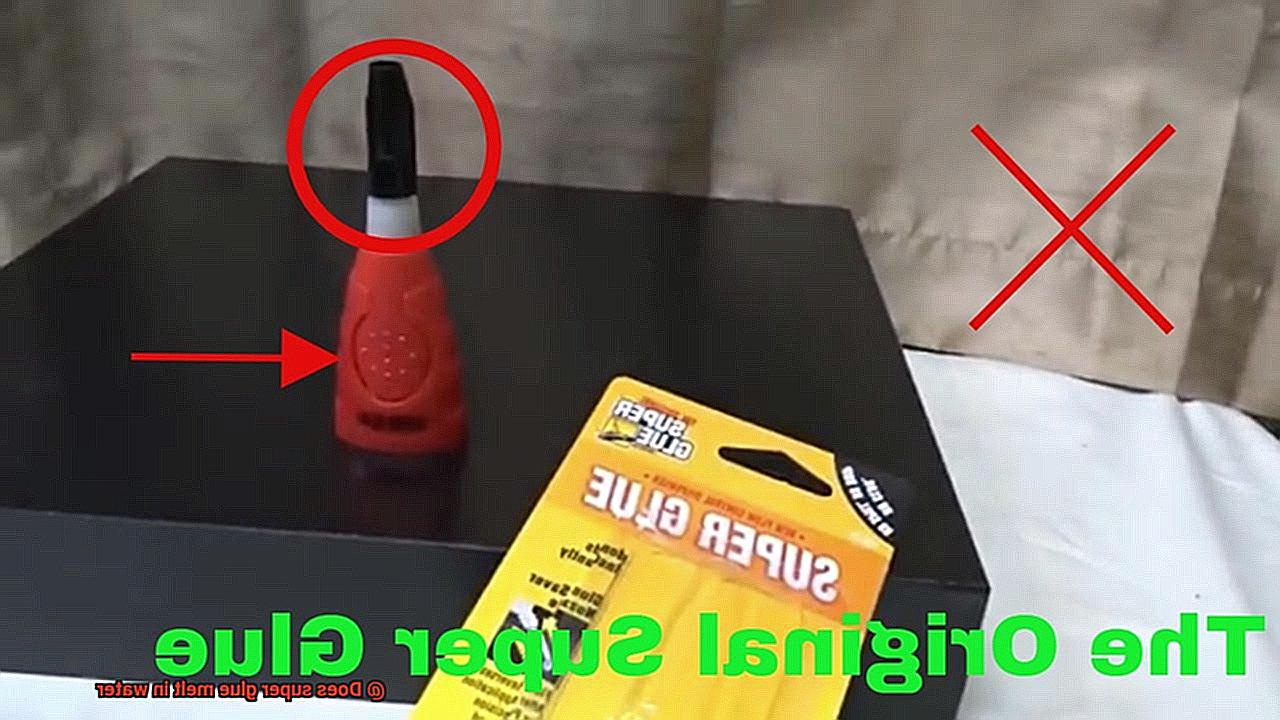
Super glue is also highly resistant to water and heat. It can withstand exposure to moisture without losing its bonding strength. This makes it an ideal choice for outdoor projects or items that are likely to come into contact with water.
Not only is super glue effective, but it’s also incredibly easy to use. It typically comes in small tubes or bottles with precision applicators that allow you to apply the glue exactly where you need it. And because it sets quickly, there’s no need to wait around for it to dry before moving on to the next step in your project.
Disadvantages of Using Super Glue
Super glue may seem like a miracle adhesive, but it’s important to understand that it also has some significant disadvantages to consider. While its fast-drying and strong bonding properties can be incredibly useful, there are some drawbacks that you should be aware of before using it.
One of the most significant disadvantages of super glue is its tendency to become brittle and break easily when exposed to water or moisture. This means that if you’re trying to fix an item that will be exposed to water or humidity, super glue may not be the best option for a long-lasting fix. The adhesive properties of super glue weaken when exposed to moisture, which can cause the bond to break without warning.
Another disadvantage of super glue is its incredibly strong adhesive properties. While this may seem like an advantage at first, it can quickly become a disadvantage if you accidentally glue something together that you didn’t mean to. Removing super glue can be difficult and may even damage the surface it’s bonded to.
Furthermore, super glue can be dangerous if not used properly. It’s important to keep it away from children and pets and avoid getting it on your skin or eyes. If you do come into contact with super glue, rinse the affected area with warm water immediately and seek medical attention if necessary.
Lastly, super glue has a short shelf life and can dry out quickly once opened. This means that you may need to purchase new tubes frequently if you use it often. Keeping your super glue in a cool, dry place can help extend its shelf life, but it’s still important to be aware of how quickly it can dry out.
Tips for Using Super Glue
Super glue, also known as cyanoacrylate adhesive, is a fast-drying and strong adhesive that can bond materials such as metal, plastic, wood, and ceramics. However, using super glue can be tricky if you don’t know the right tips and tricks. In this blog post, we will discuss five tips for using super glue to ensure that you achieve strong and long-lasting bonds.
Tip #1: Clean and Dry Surfaces
The first and most important tip for using super glue is to ensure that the surfaces you want to bond are clean and dry. Any moisture or debris on the surface can weaken the bond and prevent the glue from adhering properly. To clean the surfaces, use a mild detergent and then dry them thoroughly with a clean, dry cloth.
Tip #2: Apply Sparingly
A little bit of super glue goes a long way. Applying too much can actually weaken the bond between the surfaces. So, it’s important to apply the glue sparingly. Use small amounts of glue and avoid spreading it around too much as this can cause it to dry too quickly and prevent it from bonding properly.
Tip #3: Remove Super Glue from Skin with Warm Soapy Water
Accidentally getting super glue on your skin is not uncommon. But don’t panic. It’s not harmful, but it can be difficult to remove. The best approach is to soak the affected area in warm soapy water for 5-10 minutes. After that, gently peel or roll the glue off with your fingers or a soft cloth. Avoid pulling it off as this can cause skin damage.
Tip #4: Work Quickly
Super glue has a short working time and bonds quickly. Therefore, it is important to work quickly and accurately when applying the glue. Use small amounts of glue and apply it precisely to avoid messes. Remember, accuracy is key.
Tip #5: Store in Cool Dry Place
When storing super glue, keep it in a cool, dry place, away from heat or moisture. This will help to extend its shelf life and ensure that it remains effective for as long as possible.
Following these tips will ensure that you use super glue effectively and achieve strong and long-lasting bonds for your projects. However, it is important to always read and follow the manufacturer’s instructions for best results.
-bwjyPhEACk” >
Also Read: What Temperature Does Super Glue Melt?
Conclusion
In conclusion, the answer to the burning question of whether super glue melts in water is a resounding no. This powerful adhesive is highly resistant to water and can even be used for underwater repairs. However, it’s important to note that prolonged exposure to water can weaken the bond over time by seeping into tiny cracks and crevices.
So, if you’re planning on using super glue for a project that will be exposed to water for an extended period of time, it’s recommended to use a waterproof or marine-grade adhesive instead.
Super glue works its magic by creating a chemical reaction called polymerization when it comes into contact with moisture. This process causes the adhesive to harden and form a strong bond between surfaces in record time. Whether you’re fixing a broken vase or crafting intricate jewelry pieces, super glue is your go-to adhesive for speedy results.
While super glue has numerous advantages over other types of adhesives such as its versatility and resistance to heat and water, there are also some drawbacks to consider. For instance, its tendency to become brittle when exposed to moisture and its incredibly strong adhesive properties that make removal difficult.
To ensure optimal results when using super glue, it’s essential to follow some tips such as cleaning and drying surfaces before applying the glue, applying sparingly, removing any excess from skin with warm soapy water, working quickly and storing in a cool dry place. With these tips in mind, you can achieve strong and long-lasting bonds for your DIY projects or repairs without breaking a sweat.

